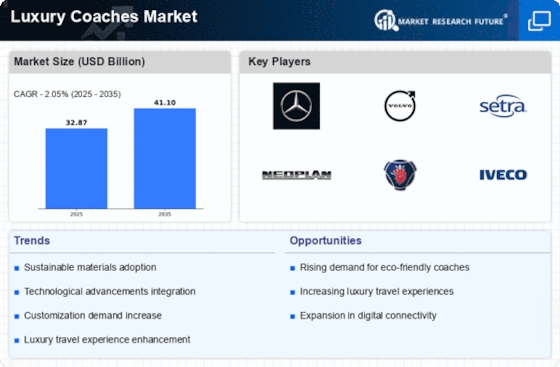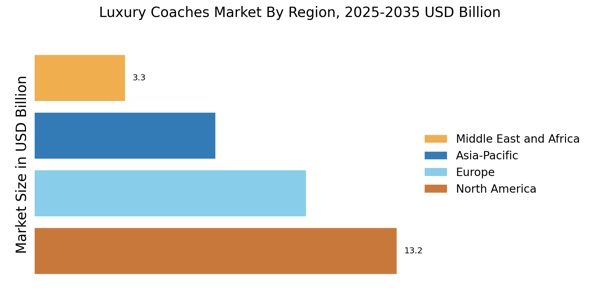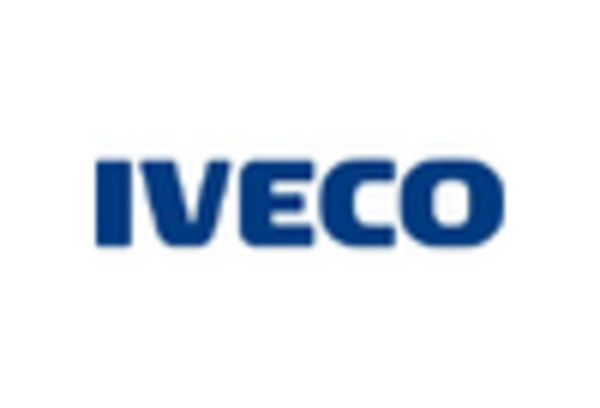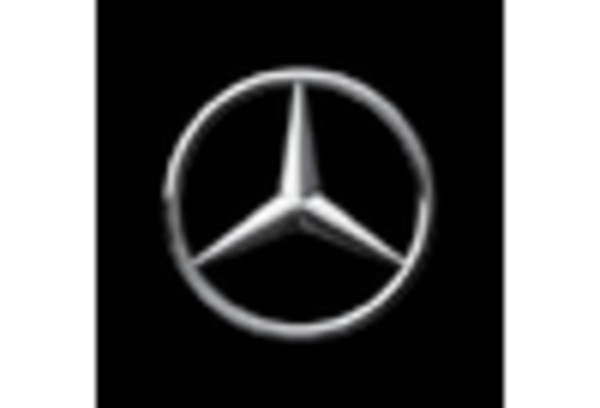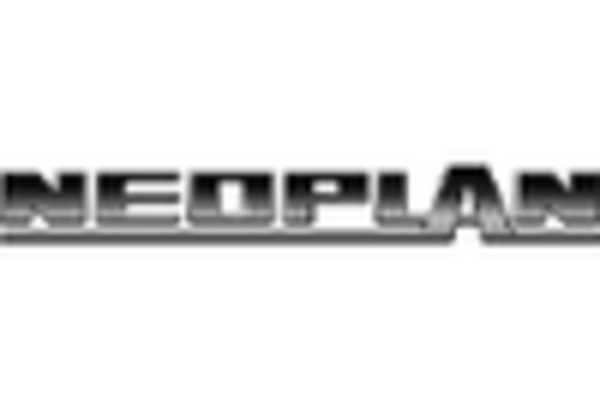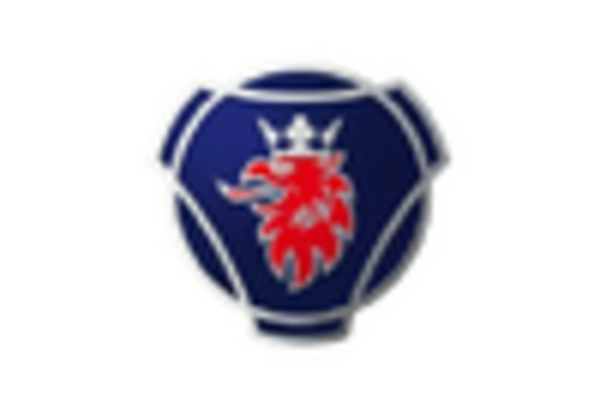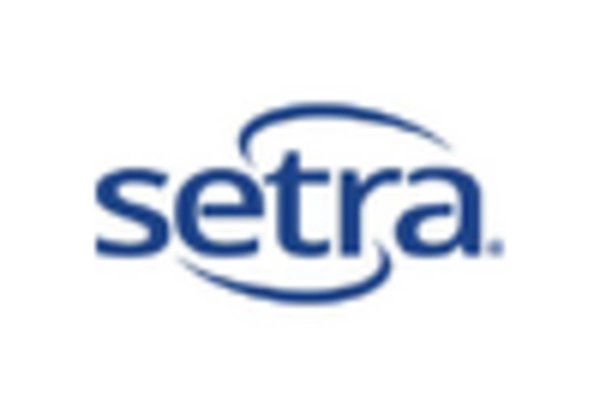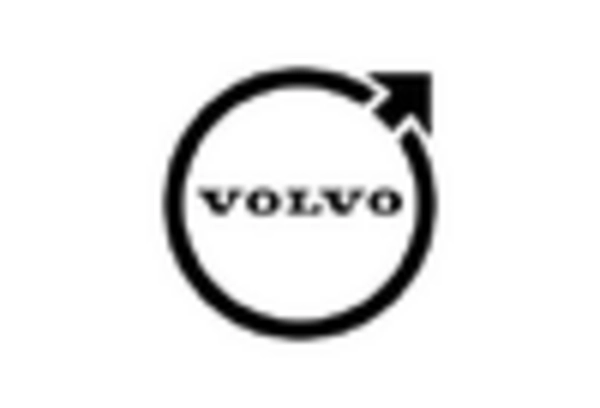Rising Disposable Income
The Luxury Coaches Market appears to be positively influenced by the increasing disposable income among affluent consumers. As individuals experience growth in their financial capabilities, the demand for luxury travel options, including high-end coaches, is likely to rise. This trend is particularly evident in emerging markets, where a burgeoning middle class is seeking premium travel experiences. According to recent data, the luxury travel segment has seen a compound annual growth rate of approximately 10% over the past few years. This increase in disposable income not only allows consumers to invest in luxury coaches but also encourages manufacturers to innovate and enhance their offerings, thereby driving the Luxury Coaches Market forward.
Technological Integration
The integration of advanced technologies is transforming the Luxury Coaches Market, enhancing both the travel experience and operational efficiency. Features such as smart connectivity, automated driving systems, and advanced safety measures are becoming standard in luxury coaches. Data suggests that the adoption of technology in the luxury vehicle sector has increased by over 25% in recent years. This technological evolution not only appeals to tech-savvy consumers but also improves the overall functionality of luxury coaches. As manufacturers continue to innovate, the Luxury Coaches Market is likely to witness a surge in demand for vehicles that offer cutting-edge technology, thereby attracting a broader customer base.
Expansion of Luxury Travel Services
The Luxury Coaches Market is experiencing growth due to the expansion of luxury travel services, which cater to an increasingly discerning clientele. Travel agencies and tour operators are increasingly offering bespoke travel experiences that include luxury coach services. This trend is supported by data showing that luxury travel bookings have surged by approximately 15% in recent years. As more consumers seek personalized and exclusive travel options, the demand for luxury coaches is expected to rise. This expansion not only benefits consumers seeking unique experiences but also encourages manufacturers to diversify their product lines, thereby driving innovation within the Luxury Coaches Market.
Increased Focus on Health and Safety
In the Luxury Coaches Market, there is a heightened emphasis on health and safety measures, which has become a critical driver of consumer choice. As travelers become more conscious of their well-being, luxury coach manufacturers are implementing enhanced safety protocols and health-focused features. This includes improved air filtration systems, spacious seating arrangements, and contactless services. Recent surveys indicate that over 70% of luxury travelers consider health and safety as a top priority when selecting travel options. This focus on well-being is likely to influence purchasing decisions, prompting manufacturers to adapt their offerings to meet these evolving consumer expectations within the Luxury Coaches Market.
Growing Demand for Sustainable Travel
Sustainability has become a pivotal concern in the Luxury Coaches Market, as consumers increasingly prioritize eco-friendly travel options. The demand for coaches that utilize alternative fuels or incorporate energy-efficient technologies is on the rise. This shift is driven by a growing awareness of environmental issues and a desire to reduce carbon footprints. Recent statistics indicate that nearly 60% of luxury travelers are willing to pay more for sustainable travel options. Consequently, manufacturers are responding by developing luxury coaches that not only provide comfort and style but also adhere to sustainability standards. This trend is likely to shape the future of the Luxury Coaches Market, as eco-conscious consumers seek out brands that align with their values.


